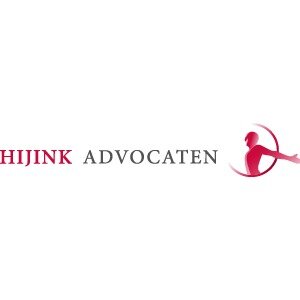Best Debt Capital Markets Lawyers in Arnhem
Share your needs with us, get contacted by law firms.
Free. Takes 2 min.
List of the best lawyers in Arnhem, Netherlands
About Debt Capital Markets Law in Arnhem, Netherlands
Debt Capital Markets (DCM) law covers the legal frameworks governing the issuance, trading, and regulation of debt securities such as bonds, notes, and commercial papers. In Arnhem, a pivotal city in the province of Gelderland, DCM is influenced by a combination of Dutch national legislation and broader European Union regulations. Companies, financial institutions, and investors operating in Arnhem rely on DCM transactions to raise capital, manage funding, and invest. Legal professionals experienced in DCM provide advice on structuring transactions, regulatory compliance, disclosure requirements, and risk assessment relevant to the local and international marketplace.
Why You May Need a Lawyer
The complexity of Debt Capital Markets makes legal advice essential in many situations. Individuals and businesses in Arnhem may require a DCM lawyer for the following reasons:
- Structuring and launching debt securities offerings
- Ensuring compliance with Dutch Financial Supervision Act (Wet op het financieel toezicht - Wft) and EU legislation
- Negotiating terms with institutional or private investors
- Drafting and reviewing documentation such as prospectuses, information memoranda, and indentures
- Assessing the legal and tax implications of different financing instruments
- Managing cross border or multi jurisdictional issues involving EU regulations
- Advising during financial restructurings or insolvencies involving debt instruments
- Representing interests in regulatory investigations or disputes arising from debt market activities
Local Laws Overview
In Arnhem, Debt Capital Markets are primarily regulated at the national and European levels. The Dutch Financial Supervision Act (Wft) sets the requirements for issuers, intermediaries, and investors in securities markets. The Netherlands Authority for the Financial Markets (AFM) supervises markets and enforces compliance. The EU Prospectus Regulation dictates when a prospectus is needed for public offerings, while the EU Market Abuse Regulation addresses transparency and anti manipulation rules. Local Arnhem based financial entities must also comply with tax laws and contract law rules specified in the Dutch Civil Code when issuing or investing in debt products. Cross border transactions or listings on international stock exchanges may involve additional legal scrutiny.
Frequently Asked Questions
What are Debt Capital Markets?
Debt Capital Markets are segments of the financial markets where organizations can raise funds through the issuance and trading of debt securities such as bonds and notes, rather than through the sale of equities.
Who regulates Debt Capital Markets in Arnhem?
The Netherlands Authority for the Financial Markets (AFM) regulates debt securities offerings, trading, and intermediaries, in accordance with Dutch law and EU regulations.
Do I need regulatory approval to issue debt in Arnhem?
Yes, most public offerings of debt securities require approval from the AFM and often involve providing a compliant prospectus if offered to the public or listed on a regulated market.
What disclosure documents are needed for a debt offering?
A prospectus is generally required, outlining terms, risks, and financial information, unless the offering is exempt under Dutch or EU rules.
How can companies structure a debt offering in the Netherlands?
Companies may opt for public or private placements, issue different types of bonds or notes, and leverage local or international listing venues, always ensuring compliance with Dutch law and applicable EU regulations.
What are the risks of non compliance?
Non compliance can result in administrative fines, regulatory investigations, civil liabilities, and reputational risk. Enforcement is strict, especially regarding disclosure and market abuse.
Do non Dutch companies face specific restrictions?
Non Dutch entities must meet the same regulatory requirements as Dutch issuers when offering debt to the Dutch public or seeking a Dutch listing, and may have additional tax and registration obligations.
How is investor protection managed in DCM transactions?
Investor protection is ensured through mandatory disclosures, regulatory oversight, suitability checks, and mechanisms to prevent insider trading and market manipulation.
What is the common process for resolving a dispute in Debt Capital Markets?
Disputes are typically resolved through negotiation, mediation, or litigation in Dutch courts. Arbitration may also be an option if agreed upon by the parties.
Do DCM transactions have tax implications in Arnhem?
Yes, the issuance and trading of debt instruments may have implications for corporate income tax, withholding tax, or VAT. Specialist legal or tax advice is recommended.
Additional Resources
If you are seeking more information or support on Debt Capital Markets in Arnhem, consider the following resources:
- The Netherlands Authority for the Financial Markets (AFM)
- The Dutch Central Bank (De Nederlandsche Bank - DNB)
- Netherlands Bar Association (Nederlandse Orde van Advocaten)
- Arnhem Chamber of Commerce (Kamer van Koophandel)
- Relevant legal or financial industry associations specializing in securities law
- Local law firms with DCM expertise
Next Steps
If you need legal assistance for a Debt Capital Markets matter in Arnhem, start by gathering all relevant documents and information about your situation. Clearly define your objectives and any deadlines or concerns. Research and contact local law firms or attorneys who specialize in DCM and securities law. During your consultation, be prepared to discuss your needs in detail and ask about the lawyer's experience handling similar matters in Arnhem. If your transaction or dispute involves international elements, ensure your legal advisor is familiar with cross border DCM practices. Remember to check credentials and ask for a clear outline of costs and services before proceeding.
Lawzana helps you find the best lawyers and law firms in Arnhem through a curated and pre-screened list of qualified legal professionals. Our platform offers rankings and detailed profiles of attorneys and law firms, allowing you to compare based on practice areas, including Debt Capital Markets, experience, and client feedback.
Each profile includes a description of the firm's areas of practice, client reviews, team members and partners, year of establishment, spoken languages, office locations, contact information, social media presence, and any published articles or resources. Most firms on our platform speak English and are experienced in both local and international legal matters.
Get a quote from top-rated law firms in Arnhem, Netherlands — quickly, securely, and without unnecessary hassle.
Disclaimer:
The information provided on this page is for general informational purposes only and does not constitute legal advice. While we strive to ensure the accuracy and relevance of the content, legal information may change over time, and interpretations of the law can vary. You should always consult with a qualified legal professional for advice specific to your situation.
We disclaim all liability for actions taken or not taken based on the content of this page. If you believe any information is incorrect or outdated, please contact us, and we will review and update it where appropriate.









